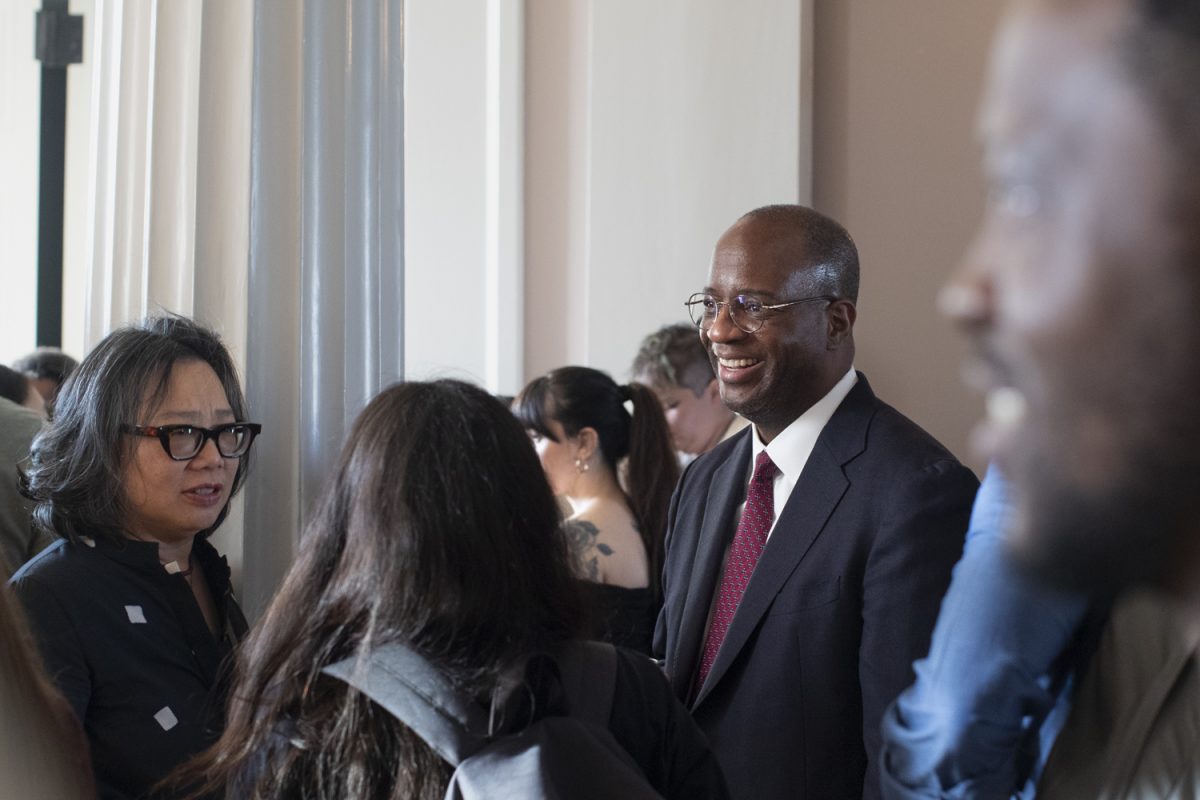On an ordinary day, between messages from colleagues on campus and strangers from beyond the hallowed walls of Princeton University, Dean of Faculty and William S. Tod Professor of English Gene Jarrett received a mysterious email that piqued his curiosity.
“Dear Professor Jarrett, would you be able to speak by phone any time this coming week? I have some nice news,” the email read.
In retrospect, when Jarrett received this message from Iowa Writers’ Workshop Director Lan Samantha Chang, his career and life took a momentous turn for the better.
Jarrett later found out that he had been named the 2024 recipient of the Truman Capote Award for Literary Criticism in Memory of Newton Arvin. The $30,000 prize is selected by a panel of esteemed judges annually with funds from the Capote Trust over the last three decades.
“This is the largest annual cash prize for literary criticism in the English language, and to be honored for it is a highly important event, a highlight of every fall for the Writer’s Workshop,” Chang said.
Jarrett was honored at a ceremony on Oct. 2 in the Old Capitol Senate Chamber. The award was presented by a series of highly regarded individuals, including University of Iowa President Barbara Wilson, Capote Trustee Louise Schwartz, and UI Associate Professor of English and African American Studies Tara Bynum.
“I love the fact that [the award] is here at the University of Iowa because we are the writing university and we talk about that every day. And this kind of award symbolizes the work we’re doing across the disciplines but most especially in the Writers’ Workshop,” President Wilson said during the ceremony.
Jarrett is preceded in the award by authors Heather Clark and R.A. Judy. Jarrett’s recognized work, titled “Paul Laurence Dunbar: The Life and Times of a Caged Bird” follows Dunbar, an African American poet, novelist, and short story writer of the 19th and 20th centuries, as well as the child of two slaves. Jarrett’s work — his third novel — was selected as one of The New Yorker’s best books of 2022.
The selection committee noted the impact of Jarrett’s work, according to an announcement by Princeton University:
“What is particularly powerful in Gene Jarrett’s landmark biography of Paul Laurence Dunbar is his emphasis on the cruel paradoxes of the poet’s career, particularly how the standard of racial authenticity became ‘a cage from which escape remained impossible,’” the announcement read. “Jarrett’s narrative is so absorbing because it tells in novelistic detail of a personal life and literary career that verged on the tragic.”
RELATED: Iowa Playwriters Workshop graduate Samuel D. Hunter speaks on his rapid success as a storyteller
In his acceptance speech, Jarrett discussed his influences in authors such as Richard Wright and Toni Morrison, his professor as an undergraduate student at Princeton University. He described that without them, he never would’ve found the inspiration or strength to tackle such a task like a biography about a figure like Dunbar.
“I worked on ‘Paul Laurence Dunbar: The Life and Times of a Caged Bird’ for 14 years,” Jarrett said in his address. “Completing the book elicited pleasure, but also a sigh of relief that an arduous journey at last came to an end.”
This is a particularly remarkable year to receive the Truman Capote Award for Literary Criticism because 2024 marks the centennial year of Capote. His 100th birthday would have been on Sept. 30. The award is presented annually in memory of Newton Arvin, an acclaimed author who was longtime friends with Capote.
“I mentioned how grateful I was to complete the project after many years,” Jarrett said. “There was kind of, as I put it, an existential willpower that’s needed in order to achieve that goal. To receive this award crowns my accomplishment and I’m grateful for the University and the jury and the community that came out to listen to me as I received it.”
Capote’s legacy paved the way for countless authors, both from The Writers’ Workshop and beyond, to explore the art of literature and the different forms of expression that can come along with that.
For Jarrett, that was his life’s blessing.
“Even greater than being awarded or rewarded during your time on earth is being so recognized afterward,” Jarrett said. “I do not know if Capote could have foreseen that his literature, life, and legacy would touch someone like me. But I stand here today to express honor and gratitude for being so touched.”



